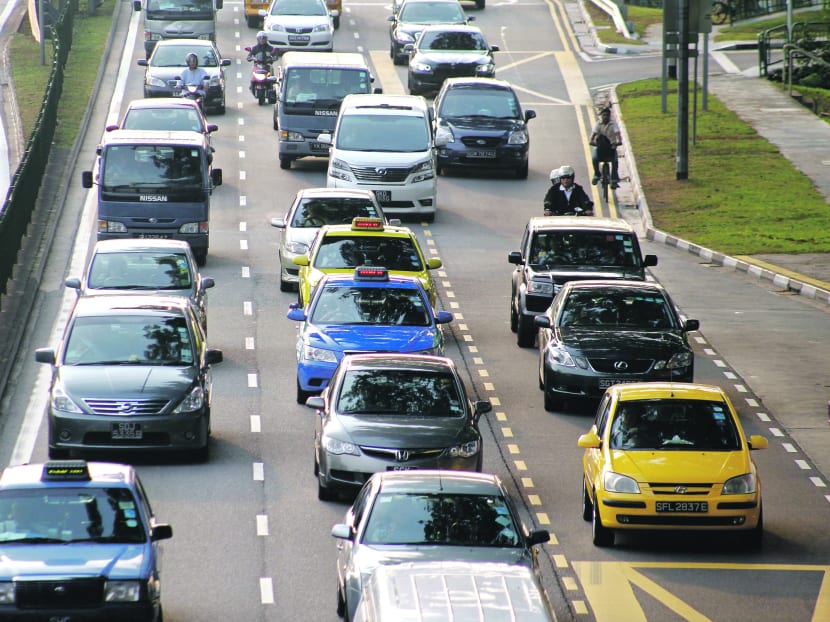COE tender postponed, sparking talk of car tax changes
SINGAPORE — The second Certificate of Entitlement (COE) bidding exercise for this month has been pushed back by two days due to an unspecified upcoming announcement, sparking speculation among industry players over what changes could be afoot.
SINGAPORE — The second Certificate of Entitlement (COE) bidding exercise for this month has been pushed back by two days due to an unspecified upcoming announcement, sparking speculation among industry players over what changes could be afoot.
Some believe the announcement could be related to removing private-hire vehicles from the COE bidding process, while others said taxes for cars could be raised.
In a press release on Friday (Feb 17), the Land Transport Authority (LTA) said the bidding exercise, which usually starts on Monday and closes on Wednesday, has been postponed to start next Wednesday and close on Friday, without giving details of the “upcoming announcement”.
Mr Eddie Loo, managing director of motor dealer CarTimes Automobile, said market talk has it that the authorities could remove private-hire cars from the bidding process, parking them under a scheme similar to that used by taxis.
In 2012, the LTA, pointing out that taxis were taking up more COEs — as much as 25 per cent — in Category A (cars up to 1,600cc), removed them from the bidding process.
Taxi operators now pay for COEs based on the prevailing quota premium for Cat A — a three-month average of quota premiums. Right now, private-hire vehicles compete for Category A COEs, pushing up premiums, said Mr Loo. Bringing them on par with COEs for taxis will make it fairer for taxis.
Meanwhile, Automobile Importer & Exporter Association (Singapore) president Neo Tiam Ting felt that recalibrating the carbon-emission standards under the Carbon Emissions-Based Vehicle Scheme (CEVS) was also a possibility.
Under the scheme — which was last revised in July 2015 and expires this June — buyers who purchase vehicles with a low carbon footprint (less than or equal to 135g of carbon emissions per km) qualify for rebates of between S$5,000 and S$30,000. Those who buy carbon-intensive models that emit 186g of carbon per km or more will have to fork out a registration surcharge of between S$5,000 and S$30,000.
Revising the carbon-emission standards would affect the price of buying a car, said Mr Neo.
However, Singapore Vehicle Traders Association (SVTA) first vice-president Raymond Tang said it was unlikely the authorities would defer the coming bidding exercise for this purpose, as any changes to the CEVS would kick in only after the current scheme expires in the middle of this year. “It’ll not be an immediate thing,” he said.
Mr Tang, who is also director of Yong Lee Seng Motor, said another possibility could be increased taxes for cars, through changes to the tax structure — particularly the Additional Registration Fee (ARF), which is broken down into three tiered rates. For instance, under the tax structure, the first S$20,000 of a vehicle’s open market value will come with an ARF of 100 per cent.
The ARF was last revised in 2013. If the tax structure is raised, “prices of the luxury cars will be higher (and) the industry needs to study the amount it’s going to bid,” said Mr Tang. Delaying the bidding exercise would give the industry “more time to adjust” to the announcement, he said.
SVTA honorary secretary Jeremy Soh felt the announcement would be in line with the Republic’s push towards becoming a car-lite society, such as making car ownership more expensive. “They’ll … change certain things to push everybody towards public transport,” he said.









